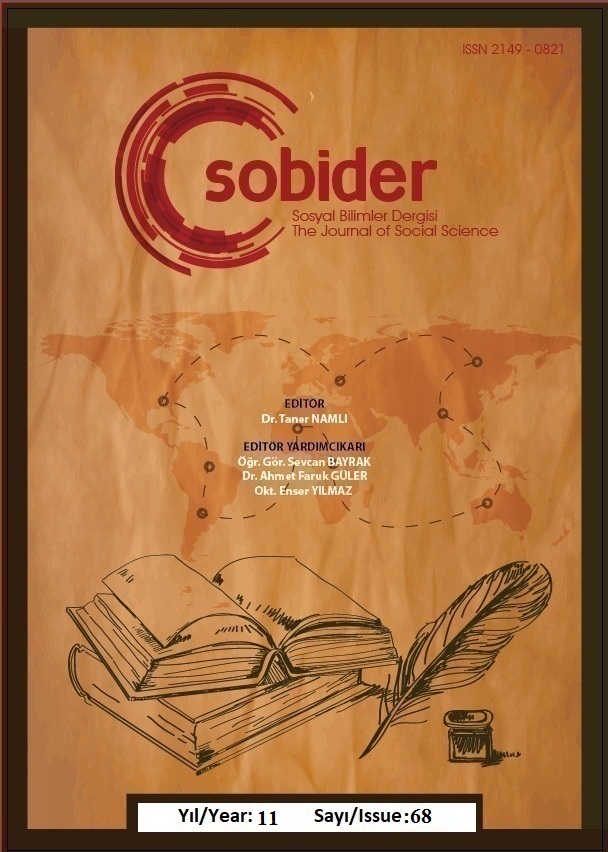Author :
Abstract
Bu makale, Türkiye sosyal bilimler yazınında Bağımlılık Ekolü ve Dünya Sistemleri Analizi perspektiflerinin etkisini Korkut Boratav’ın çalışmalarında ortaklıklar ve farklılıklar ekseninde ele almayı hedeflemektedir. Dünyada meydana gelen dönüşümlerin bağımlılık, sömürgecilik, emperyalist ilişkiler ve kapitalist dünya ekonomisiyle bütünleşme perspektifi doğrultusunda ele alınması gerektiğini ortaya koyan düşünsel çabalar, özellikle 1960’lı yılların sonuna doğru sosyal bilimlerde önemli bir çıkış yakalamıştır. Türkiye sathında da karşılık bulan bu eğilimler, imparatorluk yönetiminden sınırlı coğrafyada ulus devlet modeline evrilişini “tarihsellik”, “eşitsiz ve bağımlı gelişme”, “çevreleşme”, “dünya ekonomisiyle bütünleşme” gibi süreçlerle değerlendirilmeye başlanmıştır. Çalışmanın en temel çıkarımı, Korkut Boratav’ın Türkiye’de Cumhuriyetin kuruluşuna başka bir ifadeyle “kuruluş felsefesine” olan bakışının, onu benzer teorik arka plandan beslenen sosyal bilimcilerden farklı bir konuma yerleştirdiğidir. En temelde Cumhuriyet’in kuruluşunu “devrimci bir sıçrayış” olarak tanımlayan Boratav’ın ulus devlete kurucu bir rol atfettiği görülmektedir. Bu yönüyle Boratav’ın gerek etkilendiği dünya sosyal bilimcilerden gerekse de Türkiye içerisinde benzer yönelime sahip olduğu düşünülen sosyal bilimcilerle benzerlik taşıdığı noktalar olduğu gibi onu söz konusu yazın içinde farklı kılan şeyin Türkiye’de Cumhuriyet’in kuruluşuna dair sahip olduğu konum olduğu söylenebilir.
Keywords
Abstract
This article aims to discuss the impact of the Dependency School and World Systems Analysis perspectives in the Turkish social sciences literature on the axis of commonalities and differences in Korkut Boratav’s works. The aforementioned intellectual efforts, which reveal that the transformations taking place in the world should be handled in line with the “dependency”, “colonialism”, “imperialist relations” and “incorporation into the capitalist world economy”, have achieved an important breakthrough in social sciences, especially towards the end of the 1960s. These tendencies, which are also reflected in Turkey, result in the increase in evaluations in line with processes such as “historicity”, “uneven and dependent development”, “peripheralization”, “incorporation with the world economy” in the process of evolving from Ottoman imperial rule to Turkish nation-state model in a limited territory. The most basic conclusion of the study is that Korkut Boratav’s view on the establishment of the Republic in Turkey, in other words, his “founding philosophy”, distinguishes him from social scientists who are fed by a similar theoretical background. It can be deduced that Boratav, who defines the establishment of the Republic as a “revolutionary leap”, attributes a founding role to the nation-state. In this respect, Boratav has similarities with both the world social scientists he influenced and the social scientists who are thought to have a similar orientation in Turkey, and what keeps him in a different position in the literature in question is his view of the establishment of the Republic in Turkey.





